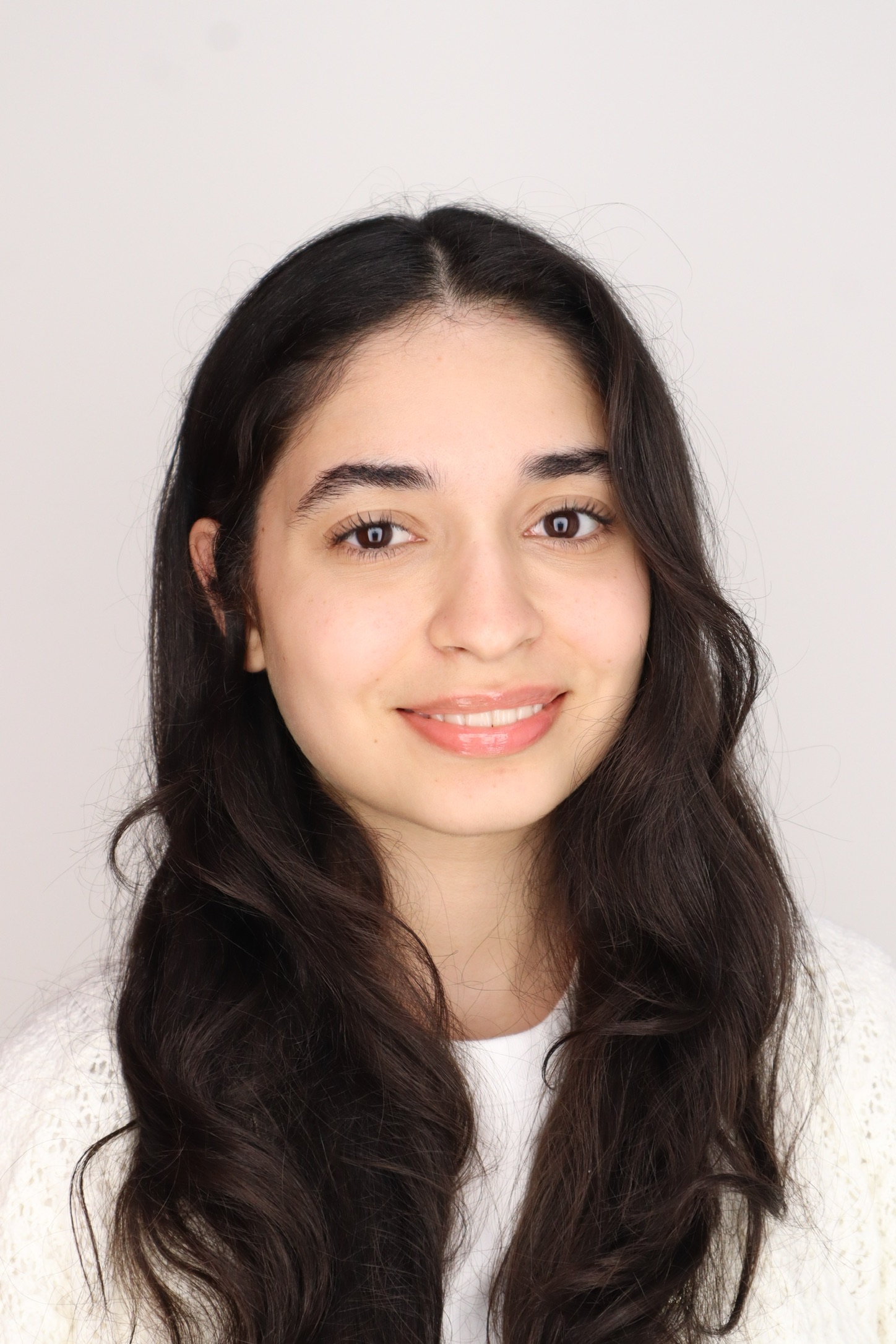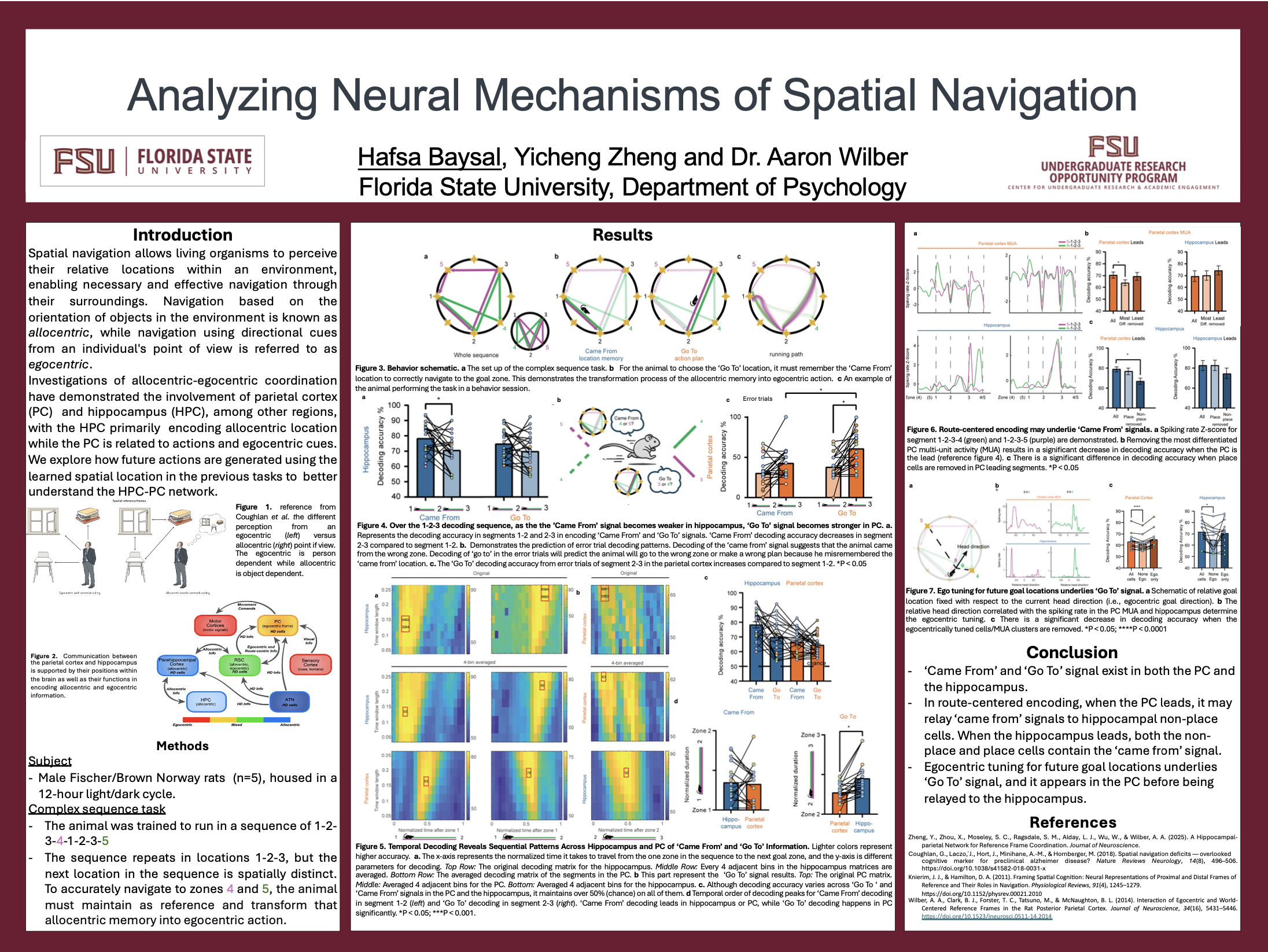Research Symposium
25th annual Undergraduate Research Symposium, April 1, 2025
Hafsa Baysal Poster Session 4: 3:00 pm - 4:00 pm/ Poster #82

BIO
Hi! My name is Hafsa and I'm from South Florida. I'm a Cell and Molecular Neuroscience major and I intend to minor in mathematics and physics.
Analyzing Neural Mechanisms of Spatial Navigation
Authors: Hafsa Baysal, Aaron WilberStudent Major: Cell and Molecular Neuroscience
Mentor: Aaron Wilber
Mentor's Department: Psychology and Neuroscience Mentor's College: College of Arts and Sciences Co-Presenters:
Abstract
Spatial navigation allows living organisms to perceive their relative locations within an environment, enabling necessary and effective navigation through their surroundings. This process relies on egocentric encoding, a self-centered point of view, and allocentric encoding, which are based on spatial cues, and the transformation in between. The hippocampus and parietal cortex (PC) comprise a network for coordinating these reference frames, though the mechanism remains unclear. We investigate these mechanisms by using the complex sequence task with rats. Neuronal activity is recorded extracellularly during behavior sessions while multi-unit activity (MUA) and different types of single unit activity will be analyzed for their roles in those reference frames. The results of this study are important to understand how the brain coordinates and integrates different spatial reference frames, shading lights on spatial cognition, memory disorders, and abstract representation formation from allocentric and egocentric views.
Keywords: Neuroscience, Spatial Navigation, spatial coordination

